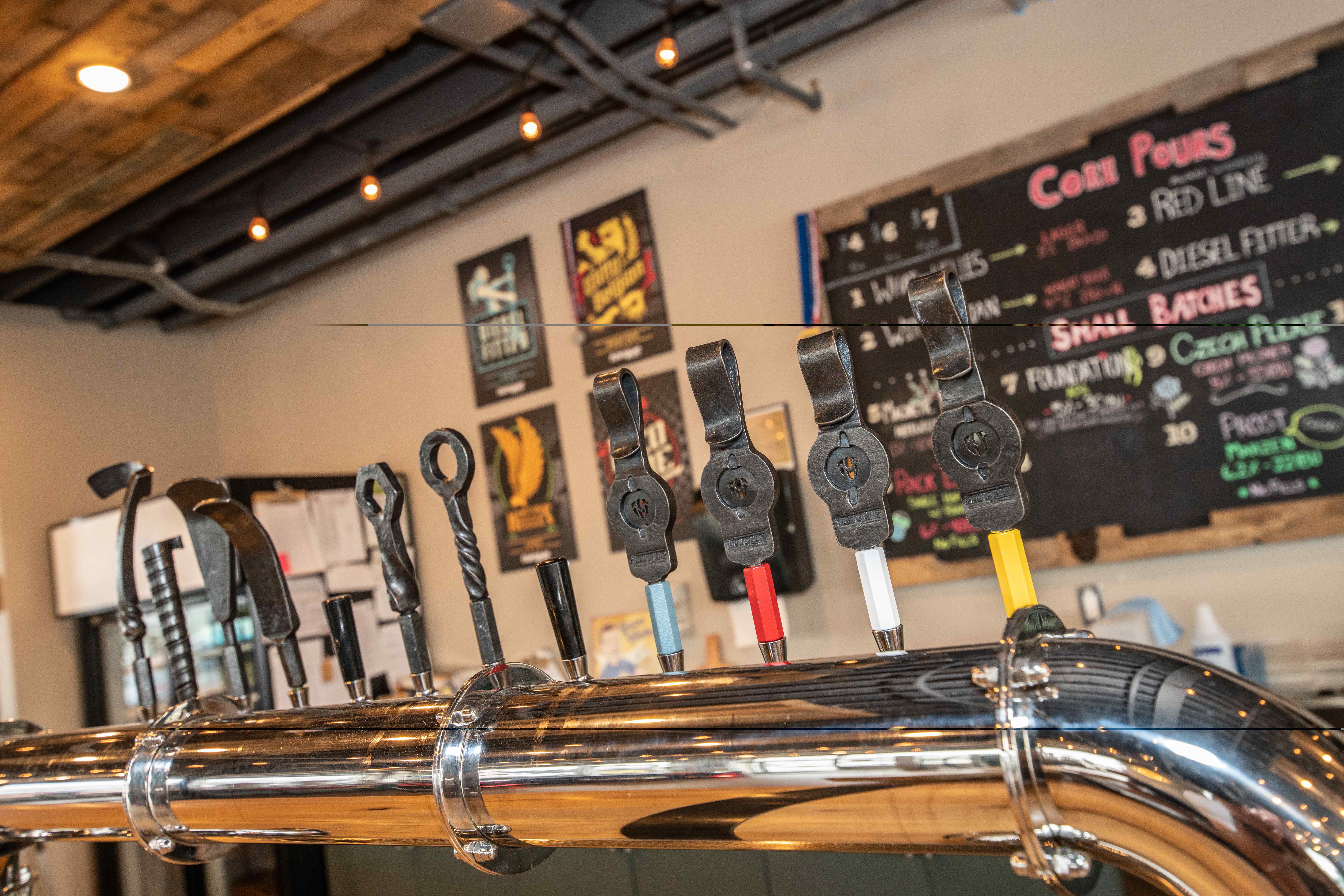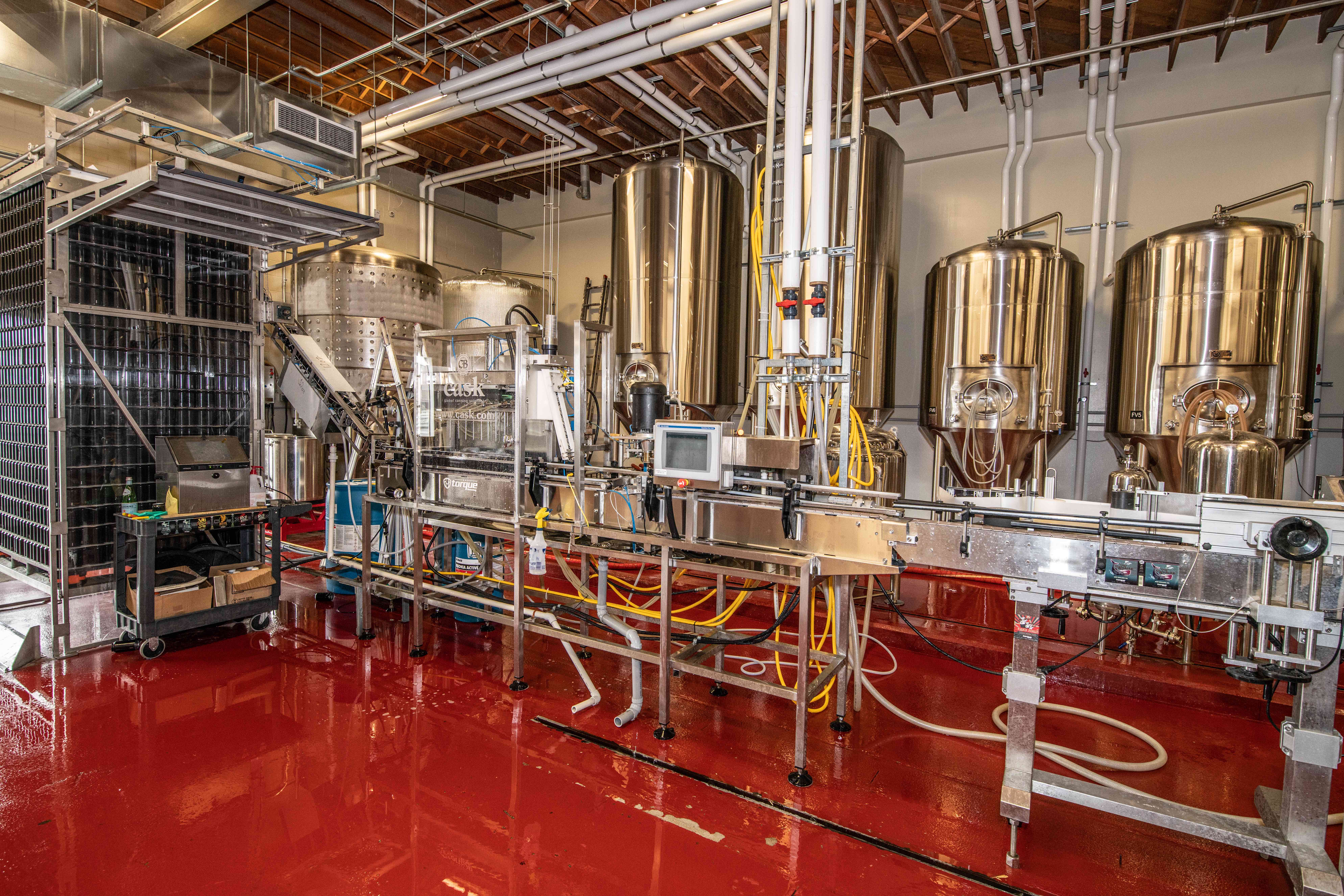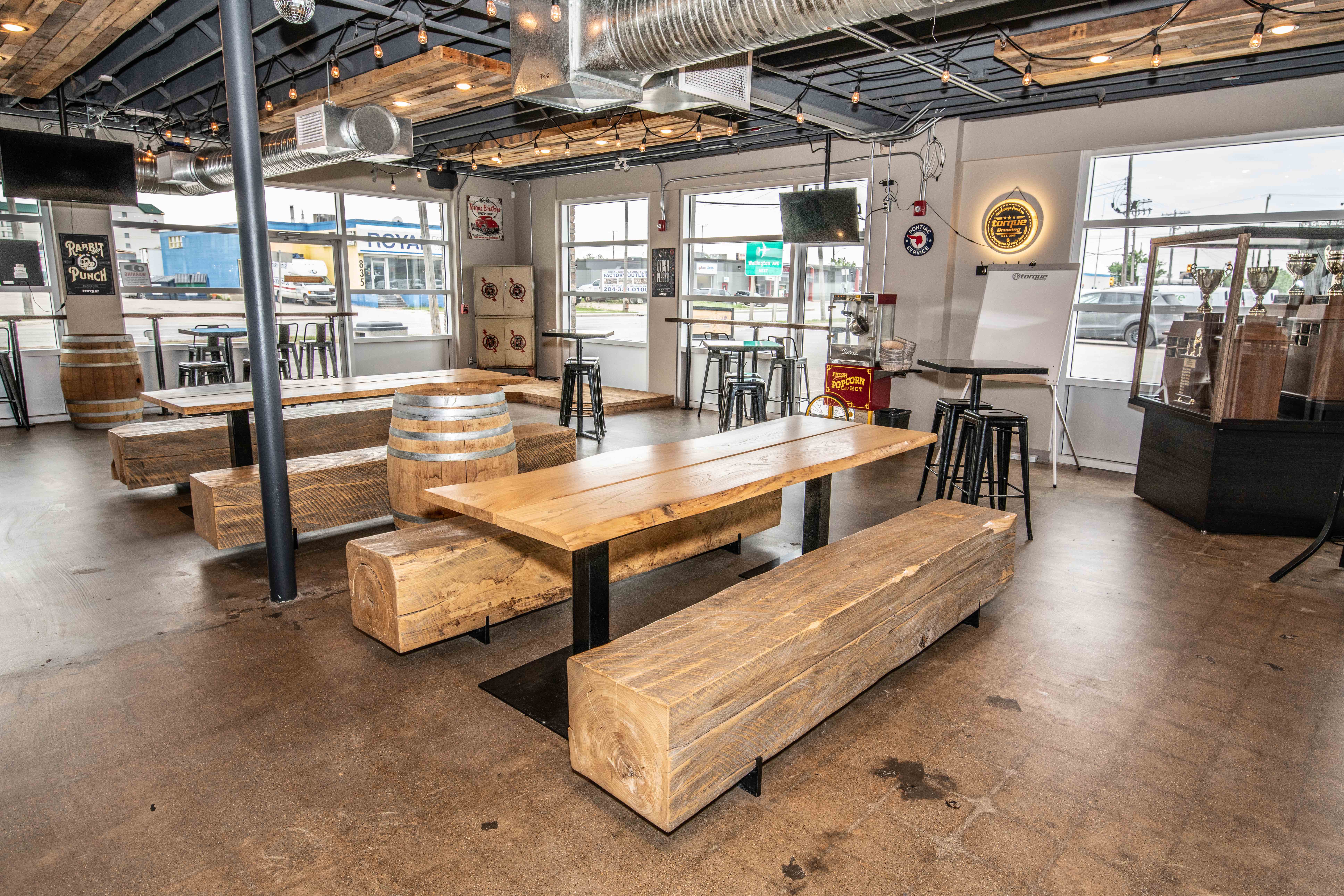
Surly Brewing Company has a lot to answer for. The Minnesota-based brewery has become one of North America’s most respected modern breweries thanks to beers such as Furious IPA.
And it was back in 2009, thanks to a love of soccer, that took John Heim and his family down to Minneapolis, one of Minnesota’s major cities. Watching a game, Heim enjoyed a beverage and the beer of choice was choice was recommended by the staff. It was a Surly Furious IPA. It changed his perspective on beer forever.
“It showed me the flavours that could exist in a beer. That beer didn’t have to be one-dimensional and could offer up a far greater experience than the beers I was used to drinking back home,” he recalls.
Fast-forward a good few years and Heim isn’t only the president of his own outfit, Torque Brewing, but the Winnipeg, Manitoba-based brewery has also gone and collaborated with Surly Brewing Company on a Rye IPA.
“It’s just like being in the crowd watching a game, with all the admiration that comes with seeing your favourite footballers in action. And then finding yourself playing on the same pitch as them a few years later,” he enthuses. “It’s surreal, gratifying, and rewarding. We loved it.”
Heim’s beer epiphany may have come in Minnesota but he is one fifth of Torque Brewing. The business, which officially launched back in August 2016, exists thanks to the efforts of Heim, Phil Bernardin, Adam Olson, Gilles Pinette, and Matt Wolff.

While Olson, Wolff and Heim are full-time from that setup. You’re looking at a board that has a combined CV of being a physician, automation engineer, government microbiologist, former head brewer and ad agency owner. A pretty good mix to start any business, that’s for sure.
While their backgrounds may differ, their joint goal remains the same. To make a great product and chip away at the macro monopoly that engulfs Manitoba’s beer scene while they’re doing it.
“The local breweries account for 4.4% of all beer sales in the province. So it goes without saying that there is a lot to chip away at. That figure is up 1.5% from the year before so it shows that we’re moving in the right direction, but there’s still a long way to go,” Heim explains.
Brewery numbers are up from a modest two as recently as 2015 to a more healthy 12 in 2018. And that number is only increasing. Consumer appetites, as they are across the globe, are changing. People want to hear the stories behind the product. They want to support local, and they want variety. Thankfully for the fine drinkers in Manitoba, that’s becoming a reality.
“I think we’re catching up to the rest of the world. You look at Ontario, British Columbia and to some degree Quebec, too. These are the major populous provinces,” Heim says. “So when you travel to places like those, let alone down in the States, you’re exposed to so many diverse, inventive styles of beer. You’re palate is taken on a journey you may hot have been on before. So coming back to Manitoba, and the limited selection we’ve been used to. Is a reality check.”

However, a relaxation of taproom rules, among other regulative changes have helped open up the brewing scene in the province. For the better.
“People are embracing change and embracing local beer,” Heim observes.
To acknowledge and celebrate the growing brewing community in Manitoba, Torque has recently helped put together a special mixed pack of beers that show off the best of local. Comprising 10 local beers and a collaboration, it includes beers from Half Pints, Stone Angel, Barn Hammer, Torque, Oxus, Fort Garry, Farmery, One Great City, Trans Canada, and Brazen Hall. A mix of cans and bottles – and two cans of Door Prize Hefeweizen. The latter is a collaborative beer available only in the pack.
The breakdown of the pack is: Door Prize Hefeweizen, a german wheat beer with aromas of bananas and cloves, with a balanced wheat malt character; Torque Red Line IPA; Half Pints Bulldog Amber ale; Fort Garry Brewing Dark ale; Stone Angel Brewing Kaiser Bill IPA; Farmery Estate Brewing Robbie Scotch ale; Barn Hammer Brewing Lousy Beatnik kellerbier; One great City brewing Tipsy Cow Milk Stout; Trans Canada Brewing Lamp Lighter Amber ale; Oxus Brewing Juice of the oats Oatmeal Stout and Brazen Hall Brewing Vakten Belgian OL.
Heim likens the launch of such a pack to the company’s own success. He felt that the business started as if it was getting on an escalator at a standstill, but now things are moving. And they’re moving fast.
Awards are flying in for their beers, and as part of the Manitoba Brewing Association, they’re trying to regulate the federal government on issues such as excise duty. Not bad for two years work.
“It’s all about variety. In business, and the beers we make,” he says. “We made the choice to do four core beers and we package on a regular basis. We also do small batch as frequently as possible, too. IPAs are still all the rage of course, but we love producing a Berliner Weiss, kettle sours and Goses, too,” says Heim.
Torque has brewed more than 60 beers since opening. Heim likens their output, and any brewery’s output to fashion.
“Look at couture. Some like it, some don’t. What works for one person, doesn’t work for the next. And that’s ok,” he says. “What’s important for us is that we do our best to help educate people on the various styles. So people know why they may or may not like a particular style of beer. It’s rewarding to see someone try a particular style and not enjoy it only to come come back and give it another shot and slowly change their opinion. It shows that people are making their own decisions.”
 Torque Brewing operates a 30hl brewhouse from Specific Mechanical Systems. This is matched by a portfolio of 30 and 60hl FVs. A smaller one barrel kit with matching FVs is housed in the brewery’s popular taproom for one-off small batch brews.
Torque Brewing operates a 30hl brewhouse from Specific Mechanical Systems. This is matched by a portfolio of 30 and 60hl FVs. A smaller one barrel kit with matching FVs is housed in the brewery’s popular taproom for one-off small batch brews.
Other kit utilised by the team is the recent addition of a centrifuge, something that has already made a positive impact on the brewery. Five days of tank time has become five hours in the centrifuge and Heim is confident on the machine’s projected 2.5 years return on investment.
A canning line from Calgary’s Cask can output 30 cans a minute in two different sizes. Heim and the team were set on packaging from day one and upcoming expansion in geographies such as Saskatchewan will see both 12oz and 16 oz cans go tor market.
Approximately 70% of the volume Torque produces are generated through packaged goods. The remaining output is through kegs that go to bars, restaurants and other outlets. Heim is content with the level of investment the brewery carries out, despite the growing “grocery list” the brewers bring to him on regular occasions.
“If you try to grow too much, too soon, you’re likely to encounter difficulties. You need to be cautious and approach growth and capital expansion with trepidation,” he explains. “Investing in equipment all of the time is fine, but you need to pay attention to the quality, and consistency of the beer you’re making. Quality control is crucial and as important as any new piece of steel.”
He adds: “I am very proud of the beer we make. I was trying to sell it in 2015 before we had it and that was obviously a challenge. It’s easier now and it’s nice to see people having the opportunity to consumer more than one local beer. I’m pleased that we were the 4th brewery to open in Manitoba and with that, we have a responsibility to the consumer to meet their expectations.”
And going forward, Heim is confident about those next formative years for the team at Torque Brewing.
“These two years have been a success. My dad taught me that if you’ve not falling down you’re not trying. I think he yelled that to me when I was learning to waterski,” he laughs. “You make mistakes, you learn and you exchange knowledge. We learned from others and others learn from us. I like to think we are one of the go-to breweries both for customers of good beer and those wanting to learn.”
He adds: “We want for people to entrench us in their buying decisions. When people buy local, I want them to buy us. We want to push boundaries and change people’s mindsets on what Manitoban beer can be.”
